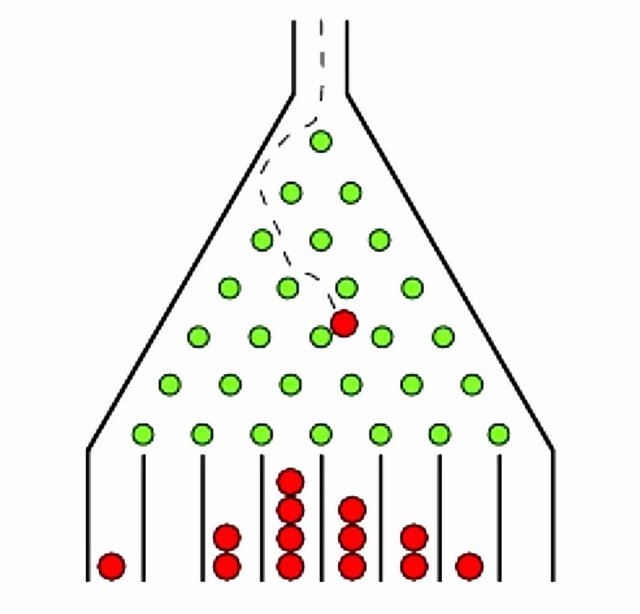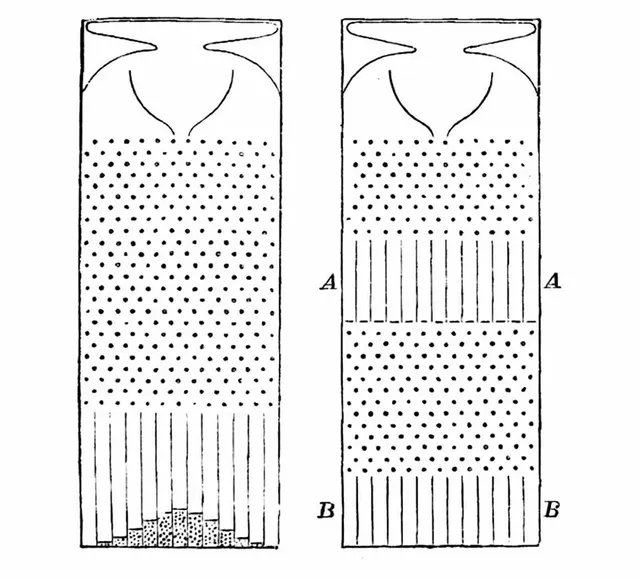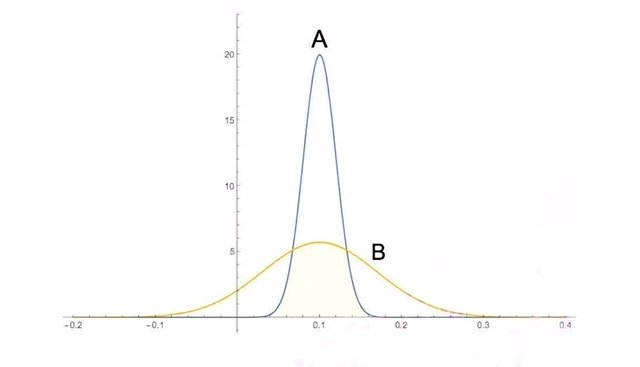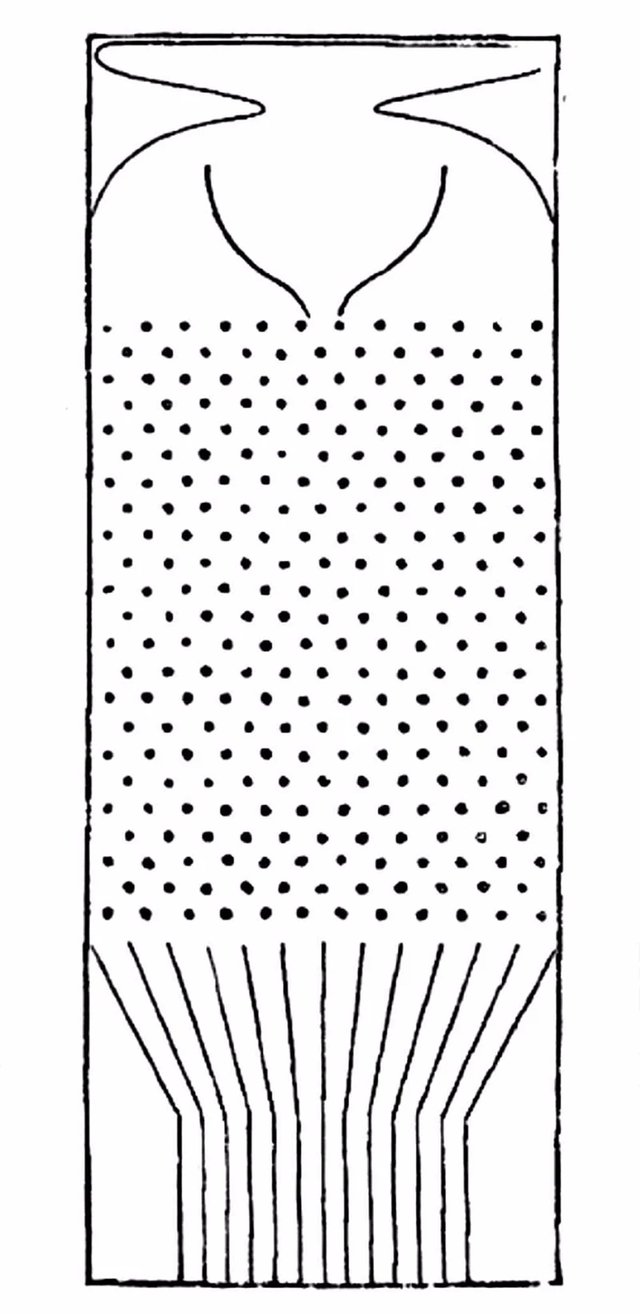From extraordinary play to return to mediocrity
We can observe a phenomenon in daily life, that is, the height of parents is high, and the average height of their children will be higher; and the height of parents is not too high, and their children will usually be older than their parents in the future. Be taller.
Then if the height of the children is always higher than the height of the parents, the height of the person should be infinitely higher. Obviously, this is not the case in our real world.
In 1877, a rare and intelligent person, academic generalist, anthropologist, inventor, Darwin's cousin, and Francis Galton gave a presentation at the Royal Academy of Sciences. Not the same, not using materials such as PPT, but talking to the audience while demonstrating experiments like magic.
What Galton demonstrated was called "Galton Plate" in later generations. It was a flat plate with many vertical grooves in the lower part, and there were some small blocks arranged in a triangle on the groove.

If a small ball is dropped on the top of the plate, the small ball will randomly pass through the obstacles of each block and eventually fall into one of the strong grooves. However, if enough balls are put in, they will show a clearly regular distribution on the hard grooves: normal distribution.

The Galton board demonstrates the inheritance of humans, such as height and IQ. We can imagine the ordinate in the figure above as height and the abscissa as the number of people on this height value. Then we can observe that the height is particularly high. And very short people.
The experiment is here. It has just begun. Galton puts an identical board under the original flat, as shown in the figure below.

Galton used two sets of boards to simulate the height of the two generations, and the height distribution of the first generation in the slot A. If the first generation of A was inherited to the slot B again, what would happen?
Through theoretical derivation and experimental demonstration, the small balls in the second row of hard grooves present a broader normal distribution, as shown in the following figure—
![mmexport1580887737856.jpg]
( )
)
This means that the standard deviation of the height of each generation will become larger and larger, and people who are particularly tall and short should have more generations than generations, but as we said above, things like this have not happened in the real world. What is the reason for that?
As an analogy, Galton surveyed 605 British celebrities and found that the descendants of these celebrities are generally less famous than celebrities themselves. This rule seems to be ubiquitous until now. The children of cattle in the real world are generally weaker than the first generation.
For example, Yao Ming is very tall, and his wife is also very tall. Normally, their daughter must be very tall. But according to the rules discovered by Galton, Yao Ming's daughter would not be taller than her father, or even shorter than her mother.
Galton called this phenomenon "return to mediocrity." The first generation was outstanding, occupying the edge of the normal distribution curve, but the second generation did not open up territory, and even the advantages of the first generation failed to keep, and began to "regress" to the middle of the curve.
As a result, Galton modified the Galton board and changed the hard groove into a diagonal groove to reflect "return"-

Here comes the question, what does the chute represent? What brought us back to mediocrity?
Daniel Kahneman has two formulas in Thinking, Fast and Slow-
Success = talent + luck
Big success = more talent + a lot of good luck
For example, part of our height is inherited from the parents' genes, and another part is the interaction of the arrangement and combination of genetic genes and environmental effects. There is luck in this.
Tall parents not only have good genes, but also have good luck. Genes can be inherited, but luck cannot be inherited. Under a high probability, children do not have the good luck of their parents, so their height is not as good as their parents.
For another example, a father won a lottery when he bought a lottery ticket, and the wealth obtained from buying a lottery ticket accounted for most of his wealth. It is easy to understand that the son will not be as rich as his father, because he may not have With such good luck, he also won a prize for buying a lottery ticket.
Moreover, I have seen a statistic, most of the people who won the lottery because they bought the lottery. After about 3-5 years, their lives will return to before the prize was won. Most of the remaining small number of people , Life is even worse than before the award.
We must acknowledge the role of luck. For example, a movie "War Wolf 2" was released in August last year, and the final box office exceeded 5 billion. We have a look at other movies released at the same time. More attractive or word of mouth, naturally, there are fewer movies to choose from, and more people watch this movie.
So we can predict that no matter how good the War Wolf 3 is, its box office must be lower than the second one.
One time Kahneman gave a lecture to the Israeli Air Force. When talking about psychology, he said that if you want to make your students improve, you must encourage them positively and don't scold them. Psychologists have ample evidence that positive encouragement is more effective than scolding.
Hearing here, one instructor expressed disagreement. He said to Kanima, my experience is not like this. If a pilot flies very well one day, I praise him then, he often does not fly the next day. it is good. But if a person is flying badly, I scold him for a meal, and he really did not fly so bad the next day. Does n’t that just mean that praise is not useful, but is it useful to scold?
Kahneman was dumb asked and probably a little embarrassed.
He finally wanted to understand that this is actually a process of regression, and today we call it "return to average".
The pilot flies particularly well, it is a small probability event, praise and no praise, he will return to the average next flight, naturally not as good as the last. Flying very badly is also rare. Criticism and non-criticism, he will return to average next flight, naturally not so bad.
Praising in the face of returning to the average is of no immediate effect, but the role of criticism is only an illusion.